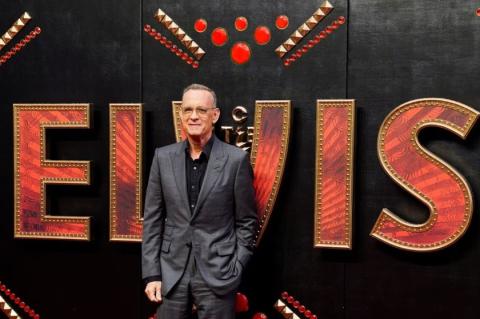
A team of 37 scientists has designed a diet for the long-term future, and the good news is that it doesn’t require anyone to eat insects or soylent green. There’s nothing dystopian about it, but some nutrition experts are still turning up their noses at the plan, which was designed to minimize environmental degradation while still feeding the 10 billion people expected to inhabit the planet by 2050.
The main complaint: The EAT diet, published in the Lancet last month, is padded with lots of corn and soy, and would ask Americans to make a drastic cut in our average consumption of meat, dairy and eggs. There’s a bitter aftertaste of the 20th-century government-recommended diets high in carbohydrates and low in fat, which are now considered a factor in skyrocketing obesity and Type 2 diabetes.
Critics quickly blasted the Lancet authors’ claims that meat is harmful to our health, or that vegan diets are better for the human body. They point out that scientific studies to date give mixed results, and are based on hard-to-interpret evidence rather than controlled experiments.
But this is a small flaw in a worthy exercise. As Earth’s population swells, a world where the perfect diet for planetary health coincides with optimal human health might not be possible.
Historically, advances in food quantity went along with degradation of quality. By studying ancient skeletons, archaeologists have found that as grain farming expanded, people deteriorated — their skeletons became shorter, with more signs of disease, and their teeth went from healthy to rotten. Nobility remained tall and healthy — eating more varied diets, including meat. It was the peasants who suffered.
Scientists eventually figured out that it takes more than just adequate calories to feed humans. We evolved to need the right combination of amino acids and particular forms of fat, as well as vitamins and minerals. Science has made great strides in preventing vitamin deficiencies, but we still don’t know what’s optimal — just what’s good enough.
The environmental side of the equation is simpler, and more obvious. Agriculture has so drastically changed our planet that in comparative biomass, wild animals make up just 4 percent of all mammals; humans, 36 percent; and livestock, 60 percent. The vast majority of bird biomass is now composed of chickens.
Gidon Eshel, a Bard College geophysicist who studies the environmental impacts of food production, lists many side effects of agriculture: the killing of wild plants and animals, nitrogen pollution in waterways, and emission of greenhouse gases. I got in touch with him because he’d given a talk several years ago at the Radcliffe Institute about a diet for environmental health that was fairly similar to the Lancet EAT diet.
Eshel concluded that the U.S. beef industry is hogging land, pouring nitrogen runoff into rivers and the Gulf of Mexico, and destroying biodiversity. That doesn’t mean everyone has to become a vegan to save the planet. We could keep up our meat-eating habits without the damage if we reduced beef production by two-thirds, and changed the way cattle are fed, he said, replacing corn with grazing and supplementing with things like the rinds left over after the squeezing of orange juice. Chickens are much easier on the environment, and eggs even better.
Nutrition isn’t Eshel’s field, but he said he does eat what he preaches — mostly plant-based food and no red meat. He’s from Israel, he said, and Middle Eastern food is traditionally more varied, and less focused on big slabs of meat.
But whether red meat is good or bad for individual people depends on the study. The Lancet report includes references to multiple studies, including one done in China that correlated meat consumption to better health. The authors acknowledge that in parts of Africa, where protein and healthy fats are scarce, children would be healthier if they had access to some meat and dairy products.
There’s a hint of food socialism: a correction to today’s gross inequalities. And this is where science blends into ethics and politics. Should only the wealthy afford to be healthy? Should people in one country be allowed to eat in a way that contributes to global pollution? How much evidence is enough to justify recommending people change their eating habits?
Nutrition science lost credibility for continuing to vilifying eggs, meat and dairy products over the possibility of a slight risk, all the while steering people toward sugary cereal, margarine and other items with effects likely to be much worse.
And to make matters more complicated, scientists have started studying the effect of diet on the brain, and they’re worried that we’re doing ourselves harm by consuming too much of a fat called omega-6 — which is among the “unsaturated” fats that the heart people deemed healthy. Omega-6 fats are in cheap cooking oils — corn, soy, safflower — and the meat of factory-farmed animals that are fed corn and soy.
For an article I reported back in 2011, I learned all about these very different kinds of fat from nutritional neuroscientist Joseph Hibbeln. He called the huge global increase in omega-6 consumption, “the greatest dietary transformation in the history of Homo sapiens.”
Chemically, omega-6 interferes with the body’s ability to absorb brain-building omega-3 fats. Studies have associated too little omega-3 with violence, suicide, depression and obesity. Some researchers worry the shift from omega-3 to mostly omega-6 is affecting the brain development of children around the world.
It might look arrogant for anyone to claim to have designed a perfect diet. What’s perfect for weight-conscious Americans may not coincide with what’s necessary to ensure proper brain development of every child in Africa. It’s also smart to be looking ahead to our more crowded future — so we can keep eating food and never have to resort to dystopian mystery substances. Bloomberg












